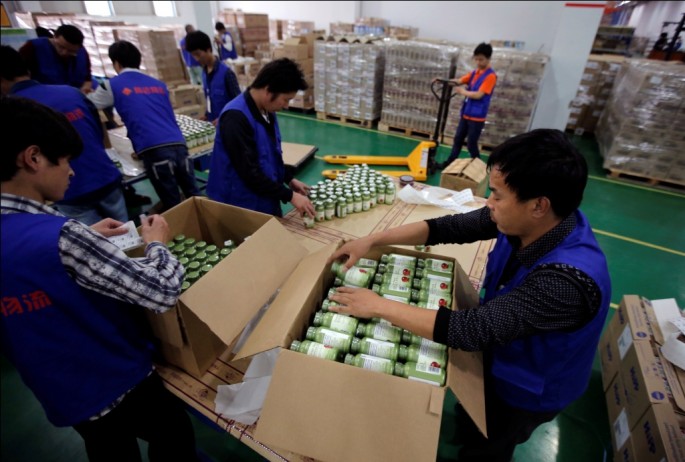China bagged a total of 13 trillion yuan ($2.1 trillion) in e-commerce transactions in 2014, the government announced Wednesday, as the world's largest economy looks to the Internet for new avenues for growth.
The country's commerce ministry did not provide specifics on the transactions, saying only that the term accounted for business-to-business and retail trade.
According to a statement made by the National Bureau of Statistics on Tuesday, online retail sales rose 49.7 percent in the past year, amounting to a total of 2.8 trillion yuan.
Recognized as having the world's biggest online population with 632 million users, China is increasingly becoming a highly lucrative market for online retail with more and more Chinese consumers choosing to buy foreign-made products online, which are cheaper than those found in shopping malls.
Recent food safety scandals have also led shoppers to prefer overseas food products like baby formula, which are said to be safer than their domestic counterparts.
China's policymakers are leveraging e-commerce as a new "engine" of growth for the economy, particularly with recent data showing the country's annual growth slipping down to 7.4 percent--its lowest in nearly a quarter of a century.
On Jan. 14, Shanghai's Free Trade Zone allowed foreign investors to fully own e-commerce companies for the first time, according to the state-run Xinhua News Agency.
Previously, foreign investors were required to have Chinese partners to enter the online shopping market and were only allowed a maximum of 55-percent ownership in the venture.
"(E-commerce) . . . is an emerging industry and we should support its healthy development," Premier Li Keqiang said in a statement last year.




























